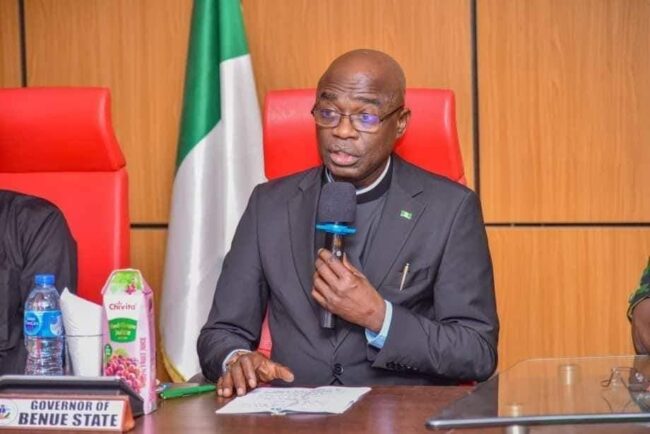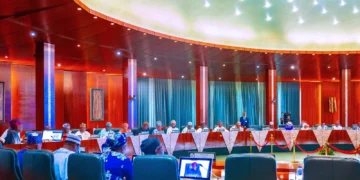In the world of Nigerian politics, moments that transcend the everyday hustle of governance are rare. But every so often, a spark of character emerges—one that forces a nation to pause, reflect, and reassess what leadership should truly embody. One such moment occurred in Makurdi, Benue State, during a state-organised dinner in honour of global music icon and newly appointed Technical Adviser on Entertainment and Community Outreach, Innocent “Tuface” Idibia.
The evening was expected to be all about celebration—an endorsement of Benue’s creative spirit and a testament to Governor Hyacinth Iormem Alia’s inclusive vision. But tucked between the applause and speeches was a moment that tested the Governor’s values—and revealed the depth of his character.
Rev. Dave Ogbole, a respected clergy and one of the most vocal critics of the current administration, took the stage to speak. His presence, though acknowledged on the official programme, ignited an emotional response. A section of the audience, largely filled with supporters of Governor Alia, responded with booing and jeers—a clear reflection of the division that criticism in our political culture often breeds.
Yet, it was in this moment of tension that Governor Alia’s true leadership came to the fore.
The Governor, a Catholic priest and a public servant, did not watch from the sidelines. He rose, walked towards Rev. Ogbole, calmed the crowd, and gently but firmly reminded them that “Benue does not silence voices. We listen. We dialogue. We disagree with dignity.”
Then, in an act that will be remembered long after speeches are forgotten, he took Rev. Ogbole by the hand and led him back to the podium. Not with fanfare or theatrics—but with humility and grace.
That singular gesture—of protecting the dignity of a critic—was not only an act of personal conviction but a bold demonstration of democratic maturity.
Governor Alia could have done what many in Nigerian politics do: ignore, embarrass, or sideline. Instead, he chose to lead—not just as a Governor, but as a priest, a reconciler, and a patriot. The speech was completed. The crowd listened. And something changed—not just in that room, but in the narrative of what is possible in Nigerian politics.
In a nation often disillusioned by arrogance and pettiness in public office, Alia’s action cuts a new path—one where power serves with humility, where criticism is not feared but embraced, and where unity is not a slogan but a lived ethic.
This is not just about political maturity. It is about moral leadership. And in that brief but historic moment, Governor Alia gave Nigeria a lesson in both.
As the country grapples with division, insecurity, and a credibility crisis in leadership, Rev. Fr. Dr. Hyacinth Alia is emerging—not only as the face of a new Benue but as a beacon of a new Nigeria. He reflects the kind of leadership our young people can look up to: principled, composed, compassionate—and unafraid to make room at the table, even for dissenting voices.
The Makurdi dinner may have been organised for an icon of music, but it is Governor Alia who left the hall as the real headline. If this is the style of leadership Benue is enjoying, then perhaps, Nigeria should start paying closer attention—not just to the message, but to the messenger.
Indeed, as new generation leaders emerge across Africa, Rev. Fr. Dr. Hyacinth Iormem Alia stands out—deeply rooted in faith, but rising as a symbol of democratic maturity, national healing, and purposeful governance.
Nigeria may just have found in him not only a man of the cloth and the constitution—but a leader for the future.
– Dr Aondoaseer Leonard – Angelo Viashima is the Director General of Benue State’s Bureau for International Cooperation and Development and a key adviser on development strategy and multilateral partnerships.





